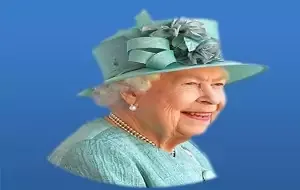 |
| Can Britain get rid of the monarchy? |
Can Britain get rid of
the monarchy? The possibility of a future overthrow of the royal family cannot
be ruled out simply because it now seems impossible.
Bridget and the global
epidemic are forcing the British nation to reconsider, which is still
considered a symbol of stability. It's time to think about these complex
issues, including the possibility of a future breakdown in the UK, a review of
the National Health Service, and a review of the UK's position in the world over
the next four (or five) academic years. ۔
This is not a bad thing at all. Harry and Megan's explosive interview
with Oprah Winfrey has divided the British public into almost equal
parts. Buckingham Palace may have underestimated this in its memoirs, but with
racial divisions it raises a very important question: will there ever be a time
when Britain will get rid of the monarchy? One thing is clear, not
at this time. We cannot see the resumption of the crisis caused by this
abduction in 1936. Despite the similarities between Meghan Markle and
Wallace Simpson, King was part of it at the time, with only one heir in sixth
place in the race for the throne. The future of the kingdom is secure for three
generations, regardless of which path Harry and Megan choose for their lives. For these reasons, this
is not the moment to shake the castle badly. This interview with Oprah Winfrey
is not as damaging as the TV interviews of Charles and Diana, who
are waiting to become kings and queens. It's not as damaging as the royal
palace's failure to understand the public mood after Diana's death. These were the days when
flowers were piled up in Kensington Gardens, but the shroud of silence did not
raise a single flag, and it is, in very polite words, an example of the
empire's folly. Not anymore. The queen
is quiet in her palace. He and Prince Philip have generally been free of racial
prejudice and have been instrumental in the epidemic, emphasizing their timely
speeches, encouraging action to tackle Captain Tom Moore, and early
vaccination. Develop. Megan and Harry may have missed the sad opportunity to be
accepted as pioneers of modernity, but at least one thing is clear from the
open controversy. |
 | ||
| Can Britain get rid of the monarchy? No one can guarantee
that, but the kingdom is one hundred percent safe. Charles' accession to the
throne will be the first test. The Queen's sense of responsibility and
greatness will make it difficult to maintain her popularity. Charles's concern
for the environment and aesthetic architecture was something beyond his time,
for which he received little praise. He is not a man or a prince for whom a
large number of warm feelings are felt and on the other hand, he had to wait so
long for his coronation that his days as king would be numbered. Will the British royal
family be able to cope? Can he adapt his organization to modern requirements
like his Dutch or Scandinavian counterparts? Which institution will they
represent so far, or will they themselves, be more diverse and less polite to
the new British generation? Will there still be a monarchy in Britain 50 years
from now? The imaginary formation
of such a scenario is possible only when the existing connections between the royal family and the king himself in daily life become more justified.
Political powers such as the opening ceremony of parliament by the Queen, a tradition of giving "advice" or "warnings" to the incumbent
Prime Minister and the post of Commonwealth Head of State will be further
curtailed. Read Also Conflict with royal family's daughter-in-law As a result, civic
issues will be called into question, such as the use of taxpayers' money for
the royal family with parliamentary approval. If Parliament refuses to release
funds for the royal family, demanding reliance on property taxes, the last link
between the people and the kingdom will be severed. As a result, either the
monarchy will remain in the name after losing everything, or Parliament and the
Queen will realistically recognize Britain as a presidential democracy. That would be the best
way, but the possibility of a peaceful or violent coup d'etat cannot be ruled
out simply because it is unthinkable. Like military defeat, a global pandemic
can destroy the current system, which is not suddenly necessary, but slowly, if
people start thinking that institutions have failed. It would be unwise to
rule out the possibility of violent change as a result of young people's
intense emotional distress, but non-British observers from outside may see the
shadow of Elizabethan's second period on our heads. Now the third possibility is this: if Britain breaks up, will the monarchy be more or less
secure? Because the indirect reliance of former Prime Minister David Cameron on
the Queen after the Scottish referendum results proves that the effects of the
breakup of the Union will be felt in the monarchy as well. Northern Ireland
will also be part of it.
Will an independent
Scotland retain the Queen as Head of State (in the style of Canada and
Australia) or would it prefer to become a potentially democratic empire? Or
could it completely prefer the Scottish royal family race? Is it possible for
England alone or together with Wales to get rid of the royal family or is it
possible to see a glimpse of ancient England in the empire and become more
royal in the past? Since Charles II
ascended the throne in 1960, there has never been a serious threat, except in
the rare case of voluntary resignation. Due to the absence of invasions,
occupations, and revolutions (in Central British cities), England and the United
Kingdom was deprived of the turbulent events that led to successful revolutions
in the rest of the world. It has its own point of view, but as a result, it is
evolving as a result of centuries of the political instability of the developing
invincible monarchy or elite, which is the time to adapt to modern times and
Preferably, French or American style should be used instead. But direct
presidential elections are needed. Political systems around
the world is said to have changed from a monarchy to a presidential-parliamentary system. After gaining independence, the colonial states have said
goodbye not only to the kings but also to their institutions. Spain is one of
the few countries where the monarchy has returned and is stuck. After the restoration of
the emperor of Iran, it lasted for 25 years, and when he was deposed by the
religious government and replaced by him. After the failure of communism,
Bulgaria, Romania, and even Russia went through a period of restoration of the
monarchy, but then it chose the presidential system. An attempt was made to
bring back the old Shah Zahir Shah in 2001 to end the civil war, but he was
unsuccessful and the king died in exile in 2007. Although history travels
in the same direction, it can also be said that Britain is located in the
region of northwestern Europe where the kingdom is still thriving. In this sense, the
British royal family can successfully retain its throne despite the problems.
Regardless of success or failure, it will continue to falter without
establishing a Dutch and Scandinavian-style system. Leaving Harry and
Megan's castle can have both effects. On the one hand, it could accelerate the decline of the defeated monarchy, on the other hand, there is the danger that
the British monarchy could put up the strongest resistance to change. |


Post a Comment